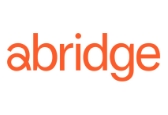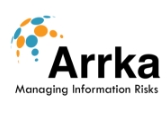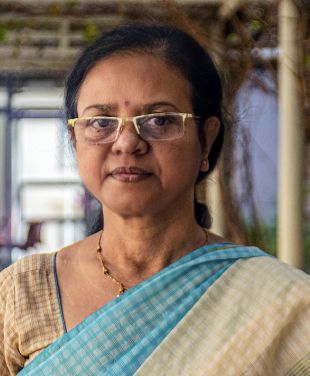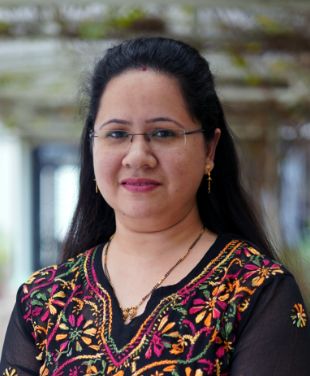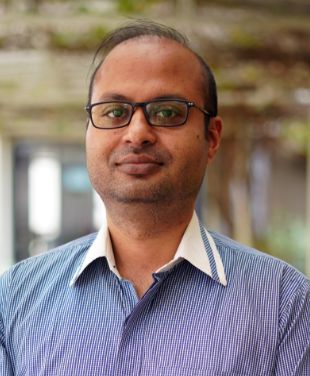iMSc
4-year Integrated MSc - Computer Science
NIIT University’s (NU) 4-year Integrated MSc programme in Computer Science (iMSc CS) is designed to provide students an overview of computing, an understanding of the concepts, principles and skills in their application and extension, and a practical experience in applied computing. NU’s iMSc CS programme is offered to students who have not studied Mathematics in Class XI and Class XII (or equivalent) and wish to pursue a career in Computer Science.
The programme
- Builds a strong foundation in the Mathematics of computing – its logic, sets, relations and grammar
- Emphasises the fundamental principles underlying computing
- Helps develop an understanding of the considerations of Computer Science in the design, implementation and usage of computing systems
Since the Computer Science discipline rests heavily on Mathematics, students are expected to take a carefully designed Bridge Programme in the subject that will enable them to cope with the rigour of the iMSc programme.
The Bridge Programme in Mathematics is spread across the first two semesters (Year I) of the iMSc programme. These will include three remedial courses in Mathematics that cover topics from univariate differential and integral calculus as well as selected topics from elementary probability.
The programme will also have several Elective courses in the area of Bioinformatics. Bioinformatics is an interdisciplinary field, which combines branches like biology, mathematics, statistics, and computer science for analysing and interpreting biological data DNA, genes, proteins, drug ingredients and metabolic pathways.
Key differentiators
What sets NU’s Integrated MSc programme in Computer Science apart? In keeping with our core principles, our iMSc CS programme offers students a robust mix of theoretical classes across disciplines and provides the hands-on experience that is required to make students industry ready.
The hallmark of the iMSc CS programme is the strong industry linkage. Students study common courses across disciplines in the first year and undertake several fundamental courses in the second year. In the sixth semester, iMSc CS students do their R&D Project component under faculty mentors. Selected students may opt for live projects in collaboration with industry partners for this component. Some courses are taught by experts from the industry or from other universities. The eighth semester involves a compulsory six-month industry practice/project.
iMSc CS students may opt for to specialise in Data Science which is a specialisation within BTech CSE that is conducted in collaboration with industry partners. Data Science involves the extraction of knowledge from data, employing techniques and theories drawn from many fields within the broad areas of computer science, mathematics and statistics.
Co-designed with an industry partner, NU’s Data Science programme focuses on creating trained Computer Science graduates to fulfil industry needs. Students shortlisted by the industry partner at the beginning of sixth semester, go through a set of special electives offered in collaboration with the industry partner during their sixth and seventh semesters.
The eighth semester is used for an industry project which can be completed either at the industry site or in the campus under joint supervision of industry and faculty mentors. Students can complete their Industry Practice in the eighth semester at companies such as Amazon, IBM, MakeMyTrip, Cognizant, Freecharge, SAP, Justdial, TCS, UrbanClap, PayU India, etc. At the end of the programme, successful candidates are likely to be offered placement by the industry partner.
Currently, NU’s industry partner in this programme is IBM. We are in conversation with other well-known companies to get them on board.
Co-designed with an industry partner, NU’s Data Science programme focuses on creating trained Computer Science graduates to fulfil industry needs. Students shortlisted by the industry partner at the beginning of sixth semester, go through a set of special electives offered in collaboration with the industry partner during their sixth and seventh semesters.
The eighth semester is used for an industry project which can be completed either at the industry site or in the campus under joint supervision of industry and faculty mentors. Students can complete their Industry Practice in the eighth semester at companies such as Amazon, IBM, MakeMyTrip, Cognizant, Freecharge, SAP, Justdial, TCS, UrbanClap, PayU India, etc. At the end of the programme, successful candidates are likely to be offered placement by the industry partner.
Currently, NU’s industry partner in this programme is IBM. We are in conversation with other well-known companies to get them on board.
NU’s iMSc CS programme is flexible enough to allow students interested in higher studies or careers in industrial R&D opportunities to participate in research at the undergraduate level itself.
iMSc CS students have the opportunity to participate in R&D projects in the sixth semester as per the curriculum. Those interested can (optionally) also undertake projects under faculty guidance during the summer. For students interested in research, the Industry Practice/Project in the eighth semester can be done in an R&D organisation.
Students are encouraged to publish and present research papers at international conferences and journals.
iMSc CS students have the opportunity to participate in R&D projects in the sixth semester as per the curriculum. Those interested can (optionally) also undertake projects under faculty guidance during the summer. For students interested in research, the Industry Practice/Project in the eighth semester can be done in an R&D organisation.
Students are encouraged to publish and present research papers at international conferences and journals.
NU’s Computer Science and Engineering department comprises faculty that possess rich prior experience in teaching, research, and industry in India, USA, Canada and Germany. Their research has been published in several international journals and conference proceedings.
Placements
NU’s iMSc CS programme offers a novel blend of disciplines to provide a broad understanding of subjects with a specific focus on their interconnectivity.
It is encouraging that every student of the iMSc batch of 2021 has found placement or have proceeded to study further in the field in reputed
institutions of higher education.
100%
placement* in 2021
9 LPA
Highest package in 2021
NU honed my skills to make me industry-ready and I was able to translate my internship at BigBasket to become a full-time professional in the company.” — Lasya Praharshini Bandi, iMSc Class of 2021
Placement partners
Students pursuing this stream find rewarding professional opportunities with reputed organisations.
Programme outline
The four-year, eight-semester course offers 179 credits.
| Semester | 8 |
|---|---|
| CSE core courses | 60 credits |
| CSE electives | 20 credits |
| Industry Practice | 20 credits |
| R&D Project | 4 credits |
| Total credits | 179 |
| Course split | |
| Lectures | 47% |
| Tutorials | 4% |
| Practicals | 49% |
- Computer Networks
- Object Oriented Programming
- Design and Analysis of Algorithms
- Computer Architecture and Organization
- Discrete Mathematics
- Database Management Systems
- Operating Systems
- Software Engineering
- Theory of Computation
- Introduction to Communication Systems
- Systems and Network Security
- Programming Tools
- Computer Graphics
Professional electives
NU’s iMSc CS programme will have several electives in the area of Bioinformatics, which plays an important role in collecting and linking DNA information to solve many medical complications, apart from electives pertaining to the field of CS.
Bioinformatics is an interdisciplinary field which combines Biology, Mathematics, Statistics, and Computer Science. Bioinformatics develops algorithms and software to record and analyse biological data such as DNA, genes, proteins, drug ingredients and metabolic pathways.
01.
Artificial Intelligence
02.
Artificial Neural Network
03.
Introduction to Soft Computing
04.
Data Mining for Bioinformatics
05.
Genomics and Proteomics
06.
Perl and Bio-Perl
07.
Computational Biology
08.
Biological Sequence Analysis
09.
Statistical Modelling for Data Science
10.
Advanced Communication Networks
11.
High Performance Computing
12.
Introduction to Linear and Nonlinear Optimization
13.
Computer Vision
14.
Mobile Platform Programming
15.
Web Intelligence and Algorithms
16.
Machine Learning
17.
Computational Geometry and Applications
18.
Cyber Security
19.
Game Theory
20.
Introduction to Information Security
21.
Modelling and Simulation
22.
Information Retrieval
23.
Natural Language Processing
24.
Java Programming
25.
Internet of Things
Specialisation

Read More
Data Science

Read More
Big Data Engineering
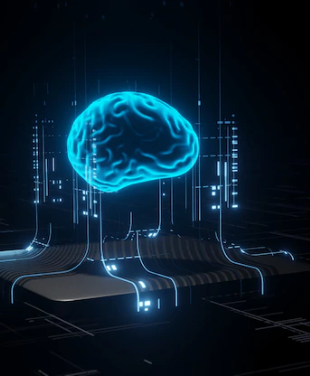
Read More
Cyber Security
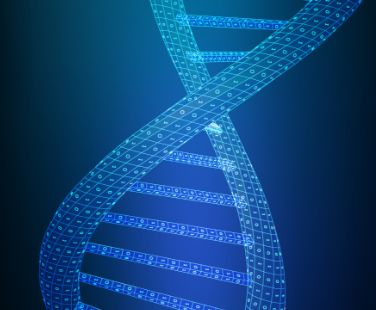
Read More
Computational Biology

Read More
Cloud Computing
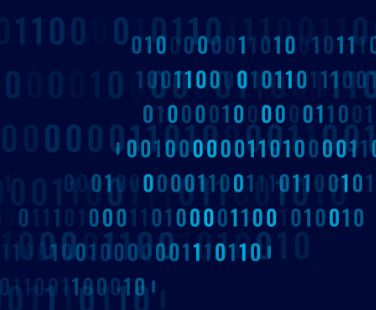
Read More
Bioinformatics
Previous
Next
Programme architecture
| # | Course code | Course | L | T | P | C | |
|---|---|---|---|---|---|---|---|
| 1 | MAT 011 | Remedial Math-I | 2 | 2 | 0 | 4/ | |
| Science-I (Physics/Chemistry) | 2 | 0 | 2 | 4 | |||
| 2 | TA 111 | Fundamentals of Computer Programming | 2 | 0 | 4 | 4 | |
| 3 | TA 102 | Communication Skills | 2 | 0 | 2 | 3 | |
| HSSM – I | 3 | 0 | 0 | 3 | |||
| 4 | NU 111 | Community Connect (Audit) | 0 | 0 | 2 | 1 | |
| Total semester L-T-P-C | 12 | 2 | 9+2 | 18+1 | |||
| # | Course code | Course | L | T | P | C |
|---|---|---|---|---|---|---|
| 1 | TBA | Remedial Math-II | 2 | 2 | 0 | 4 |
| 2 | TBA | Remedial Math III | 2 | 2 | 0 | 4 |
| Science II (Chemistry/Physics) | 3 | 0 | 3 | 4 | ||
| 3 | CS 102 | Data Structures | 3 | 0 | 3 | 4 |
| Fundamental of Electronics | 3 | 1 | 0 | 4 | ||
| 4 | ENV 301 | Environmental Science (Audit) | 3 | 0 | 0 | 3 |
| 5 | NU 112 | Community Connect (Audit) | 0 | 0 | 2 | 1 |
| Total semester L-T-P-C | 16 | 4 | 6+2 | 20+4 |
| # | Course code | Course | L | T | P | C |
|---|---|---|---|---|---|---|
| 1 | MAT 112 | Calculus | 3 | 1 | 0 | 4 |
| 2 | EL 101 | Digital Logic and Circuit | 3 | 0 | 3 | 4 |
| 3 | CS 232 | Discrete Maths | 3 | 1 | 0 | 4 |
| 4 | CS 251 | Object Oriented Programming | 2 | 0 | 4 | 4 |
| 5 | CS 241 | Introduction to Communications Systems | 3 | 0 | 2 | 4 |
| HSSM-II | 3 | 0 | 0 | 3 | ||
| 6 | NU 211 | Community Connect (Audit) | 0 | 0 | 2 | 1 |
| Total semester L-T-P-C | 17 | 2 | 9+2 | 23+1 |
| # | Course code | Course | L | T | P | C |
|---|---|---|---|---|---|---|
| 1 | CS 201 | Design & Analysis of Algorithms | 3 | 0 | 3 | 4 |
| 2 | MAT 101 | Algebra & Differential Equation | 3 | 1 | 0 | 4 |
| 3 | CS 122 | Computer Arch. & Organization | 3 | 0 | 2 | 4 |
| 4 | CS 211 | Operating Systems | 3 | 0 | 2 | 4 |
| 5 | CS 231 | Database Management Systems | 3 | 0 | 2 | 4 |
| HSSM – III | 3 | 0 | 0 | 3 | ||
| 6 | NU 212 | Community Connect (Audit) | 0 | 0 | 2 | 1 |
| Total semester L-T-P-C | 18 | 1 | 9+2 | 23+1 |
| # | Course code | Course | L | T | P | C |
|---|---|---|---|---|---|---|
| 1 | CS 261 | Computer Networks | 3 | 0 | 2 | 4 |
| 2 | CS 301 | Software Engineering | 3 | 0 | 2 | 4 |
| 3 | CS 302 | Theory of Computation | 3 | 1 | 0 | 4 |
| 4 | CS 322 | Compiler Design | 3 | 0 | 2 | 4 |
| 5 | EL 302 | Digital Image Processing | 3 | 0 | 2 | 4 |
| HSSM-IV | 3 | 0 | 0 | 3 | ||
| 6 | NU 311 | Community Connect (Audit) | 0 | 0 | 2 | 1 |
| Total semester L-T-P-C | 18 | 1 | 8+2 | 23+1 |
| # | Course code | Course | L | T | P | C |
|---|---|---|---|---|---|---|
| 1 | CS 382 | Multi-device Programming | 3 | 0 | 2 | 4 |
| Professional Elective I | 3 | 0 | 2 | 4 | ||
| Professional Elective I | 3 | 0 | 2 | 4 | ||
| Capstone Project I | 1 | 0 | 6 | 4 | ||
| 2 | NU 302 | R & D Project | 1 | 0 | 6 | 4 |
| HSSM-V | 3 | 0 | 0 | 3 | ||
| 3 | NU 312 | Community Connect (Audit) | 0 | 0 | 2 | 1 |
| Total semester L-T-P-C | 14 | 0 | 18+2 | 23+1 |
| # | Course code | Course | L | T | P | C |
|---|---|---|---|---|---|---|
| Professional Elective III | 3 | 0 | 2 | 4 | ||
| Professional Elective IV | 3 | 0 | 2 | 4 | ||
| Professional Elective V | 3 | 0 | 2 | 4 | ||
| Open Elective I | 3 | 0 | 2 | 4 | ||
| Open Elective II | 3 | 0 | 2 | 4 | ||
| Capstone Project II | 1 | 0 | 6 | 3 | ||
| 1 | NU 411 | Community Connect (Audit) | 0 | 0 | 2 | 1 |
| Total semester L-T-P-C | 16 | 0 | 16+2 | 24+1 |
| # | Course code | Course | L | T | P | C |
|---|---|---|---|---|---|---|
| 1 | NU 402 | Industry Practice/Project | 0 | 0 | 40 | 20 |
| Total semester L-T-P-C | 179 |
| Course code | Course | L | T | P | C | Course Type |
|---|---|---|---|---|---|---|
| Data Science | ||||||
| DS 412 | Inferential Statistics for Data Science | 2 | 0 | 4 | 4 | PE |
| CS 491 | Natural Language Processing | 3 | 0 | 2 | 4 | PE |
| Cyber Security | ||||||
| CS 461 | Introduction to Information Security | 3 | 0 | 2 | 4 | PE |
| CS 511 | Systems and Network Security | 3 | 0 | 2 | 4 | PE |
| Artificial Intelligence | ||||||
| CS 322 | Artificial Intelligence | 3 | 0 | 2 | 4 | PE |
| CS 4111 | Computer Vision | 3 | 0 | 2 | 4 | PE |
| Big Data Engineering | ||||||
| DS 402 | Big Data Concepts | 2 | 0 | 4 | 4 | PE |
| CS 3102 | Dimensional and NoSQL Databases | 3 | 0 | 2 | 4 | PE |
| Cloud Computing | ||||||
| CS 3132 | Cloud Computing Concepts | 3 | 0 | 2 | 4 | PE |
| CS 3142 | Advance Computer Networks | 3 | 0 | 2 | 4 | PE |
| Course Code | Course Title | L | T | P | C | Course Type |
|---|---|---|---|---|---|---|
| Data Science | ||||||
| DS 402 | Big Data Concepts | 2 | 0 | 4 | 4 | PE |
| DS 422 | Business Analytics | 2 | 0 | 4 | 4 | PE |
| DS 432 | Predictive Modelling for Data Science | 2 | 0 | 4 | 4 | PE |
| Cyber Security | ||||||
| CS 4151 | Cyber Security | 3 | 0 | 2 | 4 | PE |
| CS 572 | Cyber Forensics | 3 | 0 | 2 | 4 | PEC |
| CS 4201 | Blockchain Technology and Application | 3 | 0 | 2 | 4 | PE |
| Artificial Intelligence | ||||||
| CS 491 | Natural Language Processing | 3 | 0 | 2 | 4 | PE |
| CS 342 | Artificial Neural Network | 3 | 1 | 0 | 4 | PE |
| CS 4131 | Machine Learning | 3 | 1 | 0 | 4 | PE |
| Big Data Engineering | ||||||
| CS 451 | Data Mining | 3 | 0 | 2 | 4 | PE |
| CS 481 | Information Retrieval | 3 | 1 | 0 | 4 | PE |
| CS 4121 | Web Intelligence and Algorithms | 3 | 0 | 2 | 4 | PE |
| Cloud Computing | ||||||
| CS 4211 | Parallel & Distributed Computing | 3 | 0 | 2 | 4 | PE |
| CS 4221 | Cloud Services and Technologies | 1 | 0 | 6 | 4 | PE |
| CS 4231 | Fog and Edge Networks | 3 | 0 | 2 | 4 | PE |
| Course code | Course | L | T | P | C | Course Type |
|---|---|---|---|---|---|---|
| Data Science | ||||||
| DS 412 | Inferential Statistics for Data Science | 2 | 0 | 4 | 4 | PE |
| CS 491 | Natural Language Processing | 3 | 0 | 2 | 4 | PE |
| Cyber Security | ||||||
| CS 461 | Introduction to Information Security | 3 | 0 | 2 | 4 | PE |
| CS 511 | Systems and Network Security | 3 | 0 | 2 | 4 | PE |
| Artificial Intelligence | ||||||
| CS 322 | Artificial Intelligence | 3 | 0 | 2 | 4 | PE |
| CS 4111 | Computer Vision | 3 | 0 | 2 | 4 | PE |
| Big Data Engineering | ||||||
| DS 402 | Big Data Concepts | 2 | 0 | 4 | 4 | PE |
| CS 3102 | Dimensional and NoSQL Databases | 3 | 0 | 2 | 4 | PE |
| Cloud Computing | ||||||
| CS 3132 | Cloud Computing Concepts | 3 | 0 | 2 | 4 | PE |
| CS 3142 | Advance Computer Networks | 3 | 0 | 2 | 4 | PE |
| Course Code | Course Title | L | T | P | C | Course Type |
|---|---|---|---|---|---|---|
| Data Science | ||||||
| DS 402 | Big Data Concepts | 2 | 0 | 4 | 4 | PE |
| DS 422 | Business Analytics | 2 | 0 | 4 | 4 | PE |
| DS 432 | Predictive Modelling for Data Science | 2 | 0 | 4 | 4 | PE |
| Cyber Security | ||||||
| CS 4151 | Cyber Security | 3 | 0 | 2 | 4 | PE |
| CS 572 | Cyber Forensics | 3 | 0 | 2 | 4 | PEC |
| CS 4201 | Blockchain Technology and Application | 3 | 0 | 2 | 4 | PE |
| Artificial Intelligence | ||||||
| CS 491 | Natural Language Processing | 3 | 0 | 2 | 4 | PE |
| CS 342 | Artificial Neural Network | 3 | 1 | 0 | 4 | PE |
| CS 4131 | Machine Learning | 3 | 1 | 0 | 4 | PE |
| Big Data Engineering | ||||||
| CS 451 | Data Mining | 3 | 0 | 2 | 4 | PE |
| CS 481 | Information Retrieval | 3 | 1 | 0 | 4 | PE |
| CS 4121 | Web Intelligence and Algorithms | 3 | 0 | 2 | 4 | PE |
| Cloud Computing | ||||||
| CS 4211 | Parallel & Distributed Computing | 3 | 0 | 2 | 4 | PE |
| CS 4221 | Cloud Services and Technologies | 1 | 0 | 6 | 4 | PE |
| CS 4231 | Fog and Edge Networks | 3 | 0 | 2 | 4 | PE |
FAQs
1. What is unique about Integrated MSc Computer Science?
NU’s iMSc CS programme is designed for students who have not studied mathematics in class XI and class XII so they can enter into the exciting world of Computer Science Engineering.
Students have the choice of pursuing pure computer science (CS)-related courses or to do a combination of CS and Computational Biology courses.
The iMSc CS degree puts them on par with BTech students with respect to the industry.
The iMSc CS degree puts them on par with BTech students with respect to the industry.
2. What is the duration of the programme?
It is a 4-Year Integrated MSc Computer Science programme.
3. How is Integrated iMSc CS different from BTech CSE?
It is not very different. iMSc CS students have to take remedial Mathematics courses. They are also eligible to take professional electives offered to BTech Biotechnology students which are not normally offered to CSE students.
4. Am I eligible for the same placements as BTech CSE?
Certainly. In fact, placements opportunities are wider in scope. In addition to the CS industry, IT industries working in biology and allied areas would prefer to hire candidates with both CS and biology expertise.
5. Will I be able to pursue a PhD in CS at any university after doing NU’s iMSc CS programme?
The iMSc CS degree is a recognised master’s degree after which students can apply for doctoral studies at any institute.
6. Will I be able to pursue a PhD in BT at any university after doing the iMSc CS programme?
The iMSc CS degree is a valid master’s degree. Students who wish to pursue a doctoral degree in BT will have to fulfil course prerequisites for PhD in BT, if any.
7. Can I switch to BTech CSE after completing one year of iMSc CS?
This is not possible.
8. I have dropped Maths. How will I cope with Maths in iMSc CS?
A carefully designed Bridge programme in Mathematics is provided to iMSc CS students to cope with the mathematics requirements in Computer Science. The remedial mathematics courses deal with only those topics in mathematics that are of relevance to CS. Hence, you will find it very interesting.
9. I do not have a strong liking for Maths. Will I be able to cope with iMSc CS?
The remedial Math courses deal with only those topics in Maths that are of relevance to Computer Science and will be taught by expert faculty. Hence you will find it very interesting and relevant.
10. What is the difference between iMSc and normal MSc?
The duration of the iMSc programme is four years while it is five years for a regular MSc. The credit load is higher for iMSc CS as it is on par with a BTech.
11. How will the future career prospects be for this degree? Will I be treated on par with a BTech CSE or lower or higher?
The CS and Biological Sciences industries are rapidly advancing and both industries have indicated a strong need for computational biologists. The career prospects for a student with an iMSc CS degree are therefore very bright. The opportunities are also wider in scope to pure CS companies since IT industries working in Biology and allied areas prefer to hire candidates with both CS and Biology expertise. NU’s iMSc CS programme is so designed that you will be treated on par with BTech CSE with respect to placements.
12. What about the faculty?
- Most of our faculty hold PhD degrees while others are pursuing their doctoral degrees at well-known institutions including NU itself.
- Our faculty members have international qualifications combined with a perfect blend of academia and industry experience. They are engaged in active research in addition to their teaching and institution-building responsibilities.
- Our expert faculty will handle remedial maths programme and provide faculty mentorship to iMSc CS students.
- In addition to this, our adjunct faculty bring in industry and corporate experience that is vital to nurturing world-class engineers.
*Placements since inception for students who were eligible and opted for placements from NU
